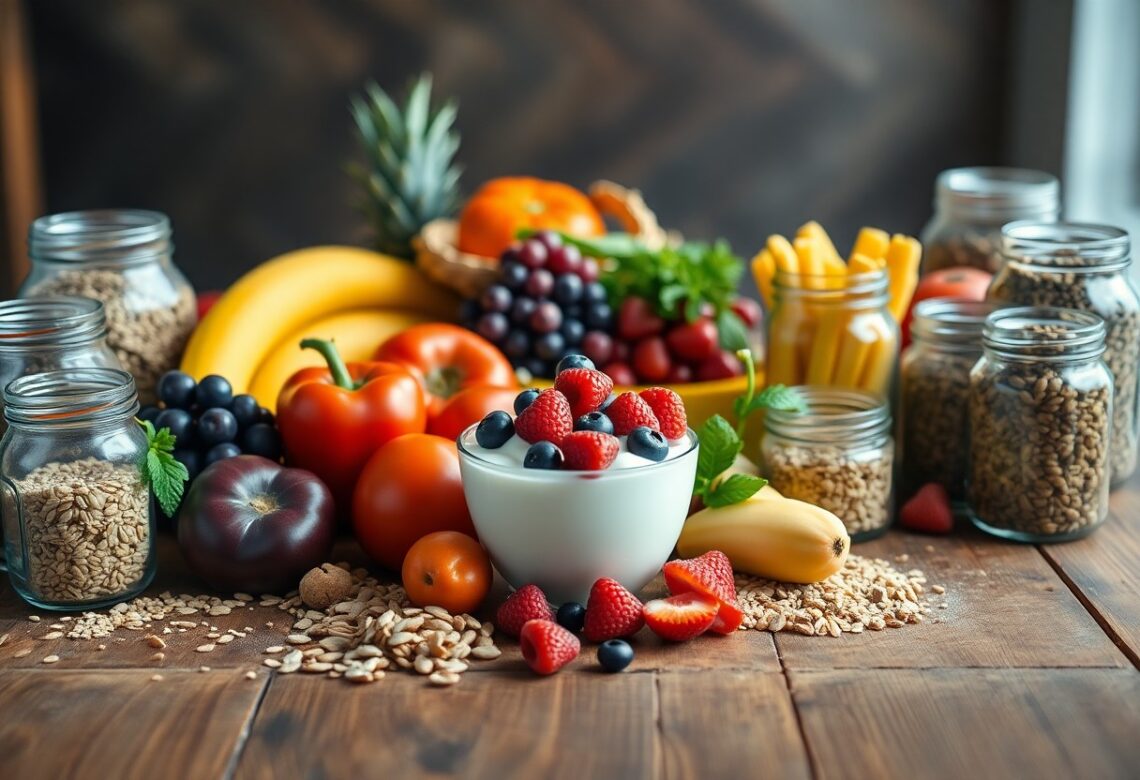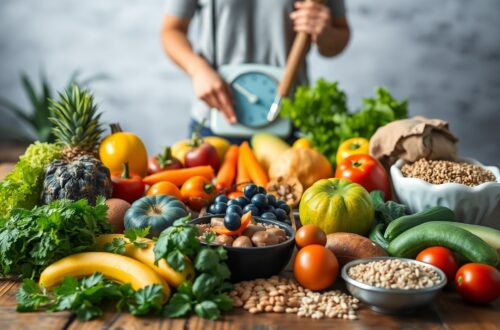It’s common to experience constipation, especially when begining on a weight loss journey. This condition can undermine your efforts, leaving you feeling uncomfortable and frustrated. In this post, you will discover dietary solutions that can help alleviate constipation while supporting your weight loss goals. By incorporating specific foods and nutrients into your diet, you can enhance your digestive health and promote regularity, allowing you to feel lighter and more energized. Get ready to explore effective strategies tailored to your needs and make your journey smoother.
Key Takeaways:
- Fiber-Rich Foods: Incorporate plenty of fruits, vegetables, whole grains, and legumes to enhance fiber intake, promoting regular bowel movements.
- Stay Hydrated: Drink ample water throughout the day to help soften stool and facilitate easier digestion.
- Healthy Fats: Include sources of healthy fats such as avocados, nuts, and olive oil to aid in digestion and reduce constipation.
- Regular Meals: Maintain consistent meal times to establish a routine that supports digestive health.
- Probiotics: Consider fermented foods like yogurt and kefir to boost gut bacteria, improving overall digestive function.
- Avoid Processed Foods: Limit intake of processed and high-fat foods that can contribute to constipation and impede weight loss.
- Regular Exercise: Engage in physical activity to stimulate bowel movements and support your weight loss journey.

Understanding Weight Loss Constipation
Your body can react in various ways during a weight loss journey, and constipation is a common issue many encounter. As you adjust your diet and lifestyle, changes in your food intake, hydration levels, and physical activity can lead to slower bowel movements. It’s important to recognize this condition and understand its causes to address it effectively.
Causes of Constipation in Weight Loss
With changes in your eating habits and the reduction of calorie intake, your digestive system may struggle to adjust. Insufficient fiber, dehydration, and decreased food variety can all contribute to constipation while losing weight. Additionally, stress and lifestyle changes can exacerbate the problem, making it vital to figure out the underlying causes that may be affecting your digestion.
The Importance of Fiber
Causes of constipation can often be linked to low fiber intake, as fiber plays an vital role in maintaining healthy digestion. When you’re trying to lose weight, you may choose to eat fewer carbohydrates or processed foods, which can lead to a lesser intake of fiber-rich fruits, vegetables, and whole grains. This reduction may result in your body not having enough bulk to promote regular bowel movements, ultimately leading to constipation.
Due to its ability to add bulk to your stool, fiber ensures that waste moves smoothly through your digestive tract. Incorporating adequate amounts of soluble and insoluble fiber into your diet can help alleviate constipation. Foods such as fruits, vegetables, legumes, and whole grains will not only help you meet your weight loss goals but also support optimal digestion. By prioritizing fiber, you will create a more balanced diet that aids in preventing constipation while keeping you on track with your weight loss aspirations.
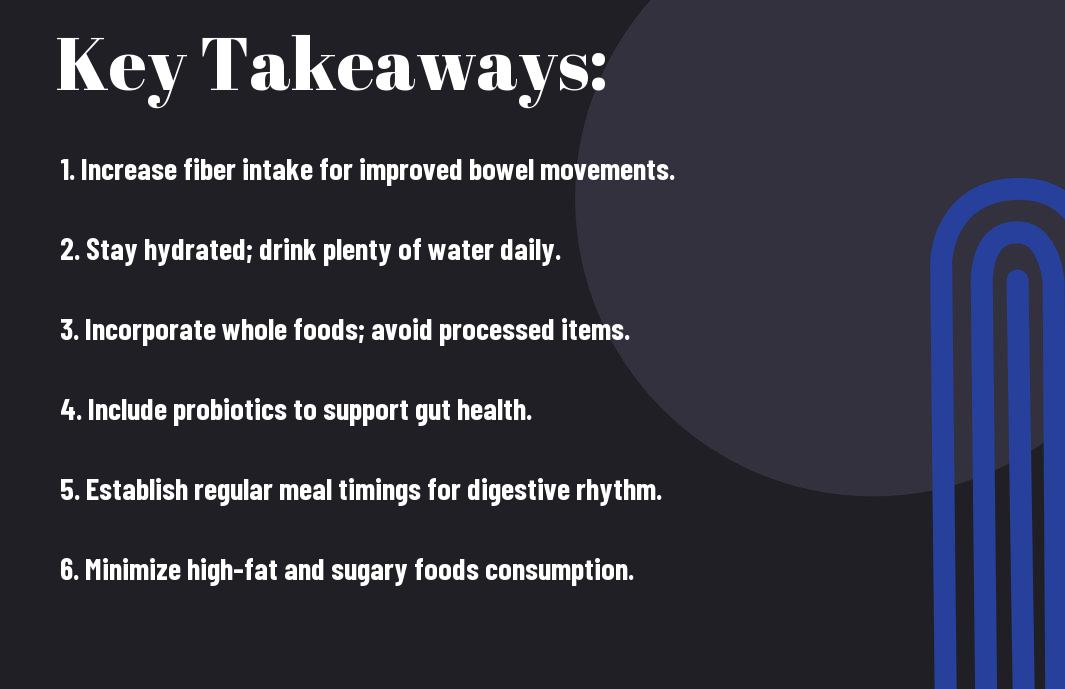
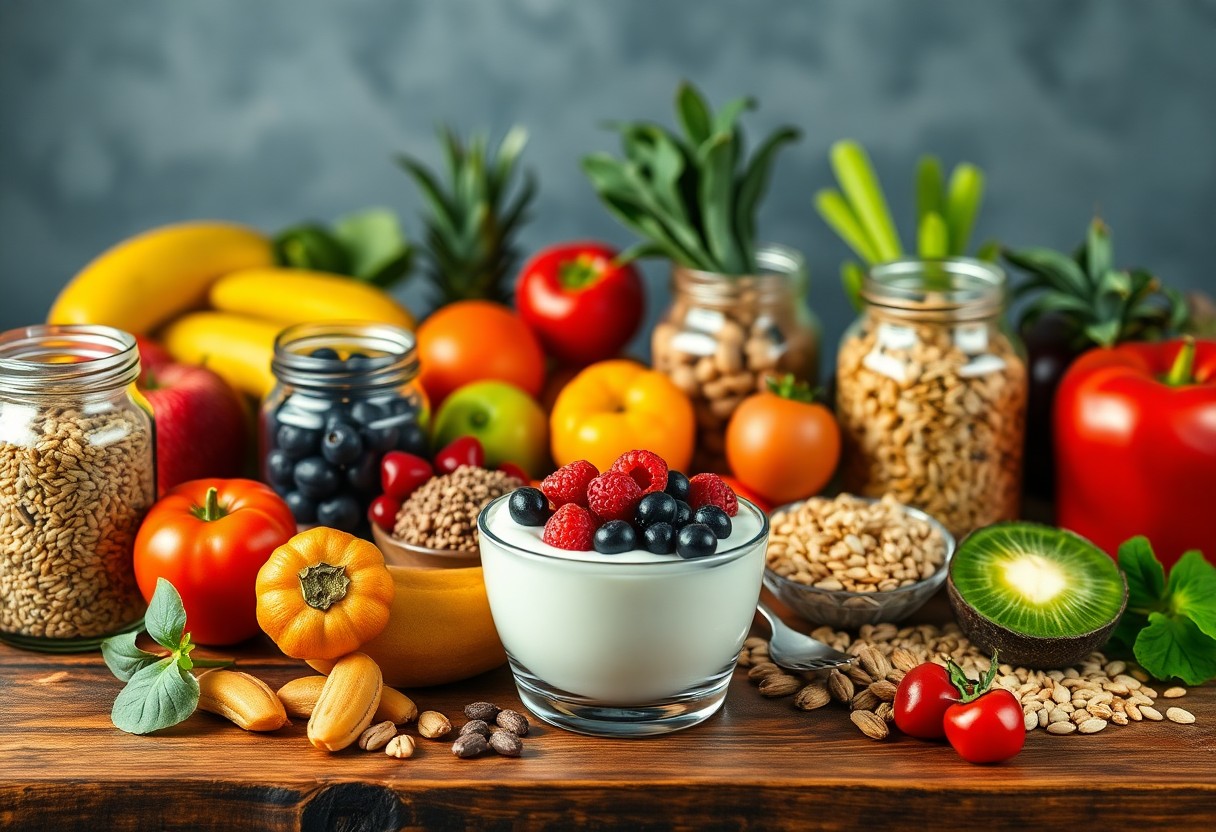
Dietary Solutions
While addressing weight loss-related constipation, focusing on your dietary choices can significantly improve your digestive health. Incorporating specific foods that promote regularity and overall well-being can alleviate discomfort, making your weight loss journey smoother. You can create a balanced diet that not only supports weight management but also enhances your body’s natural functions.
High-Fiber Foods
Beside the obvious benefits of weight loss, high-fiber foods play an necessary role in promoting digestion. Incorporating fruits, vegetables, whole grains, and legumes into your meals will help keep your bowel movements regular. You should aim for a variety of fiber sources to ensure you receive both soluble and insoluble fiber, which can help soften stool and enhance your overall gut health.
Hydration and its Role
Above all, staying well-hydrated is vital for supporting your digestive system. Adequate water intake helps break down food and aids the fiber in your diet to move through your intestines effectively, reducing the likelihood of constipation. You should aim for at least eight glasses of water each day, adjusting according to your activity level and climate.
Plus, it’s important to note that hydration doesn’t only come from drinking water. Incorporating water-rich foods like cucumbers, watermelon, and broth can also help meet your hydration needs. Monitoring your fluid intake and making conscious efforts to stay hydrated will enhance your dietary efforts. This adjustment can streamline your metabolism and help you maintain regular bowel movements, making your weight loss journey that much more effective.
Probiotics and Gut Health
Not only can probiotics help alleviate constipation, but they can also enhance your overall gut health. A balanced gut microbiome is important for proper digestion, and incorporating Foods for Constipation into your diet can foster this balance. Probiotics support beneficial bacteria in your intestines, which can improve both bowel regularity and nutrient absorption, leading to better overall well-being.
Benefits of Probiotics
Against common misconceptions, probiotics do more than just support digestion; they can also reduce bloating and improve gut motility. By restoring your gut flora, probiotics can aid in preventing and alleviating constipation, providing a natural solution for your digestive issues.
Sources of Probiotics
Probiotics come from various fermented foods you might already enjoy, such as yogurt, kefir, sauerkraut, and kimchi. These foods are rich in live cultures that promote a healthy gut environment.
This makes them an accessible way to boost your probiotic intake. You can incorporate these foods into your meals or snack options. Additionally, consider probiotic supplements if you struggle to obtain enough through diet alone. Just ensure to choose high-quality products that contain effective strains to maximize your gut health benefits.
Meal Planning for Digestive Health
Unlike typical meal plans that may overlook digestive health, incorporating high-fiber foods, adequate hydration, and balanced macronutrients can significantly enhance your digestive system’s functioning. Planning your meals with an emphasis on whole grains, fruits, vegetables, and lean proteins can help alleviate constipation while supporting weight loss. Aim to include a variety of foods that are not only satisfying but also packed with vitamins and minerals to encourage healthy digestion and overall well-being.
Sample Meal Plans
With a focus on fiber-rich ingredients, a daily meal plan could involve oatmeal topped with berries for breakfast, a quinoa salad with chickpeas and mixed veggies for lunch, and baked salmon with steamed broccoli and sweet potatoes for dinner. Snacks can include hummus with carrot sticks or a handful of nuts. This combination nurtures your digestive health while keeping your caloric intake in check.
Snacks that Promote Digestion
Above all, choosing the right snacks can significantly enhance your digestive health. Opt for choices like yogurt with live cultures, apple slices with almond butter, or a small serving of mixed nuts. These snacks not only provide crucial nutrients but also contain fibers and probiotics that support a healthy gut.
Digestion-friendly snacks can also include fresh fruits such as kiwi or berries, which are high in fiber and antioxidants. Incorporating fermented foods like sauerkraut or pickles as a snack can help introduce beneficial probiotics. Consider trail mixes made with seeds, nuts, and dried fruits to provide energy while also supporting digestive health. By integrating these delicious options into your daily routine, you can promote a well-functioning digestive system and aid weight loss efforts simultaneously.
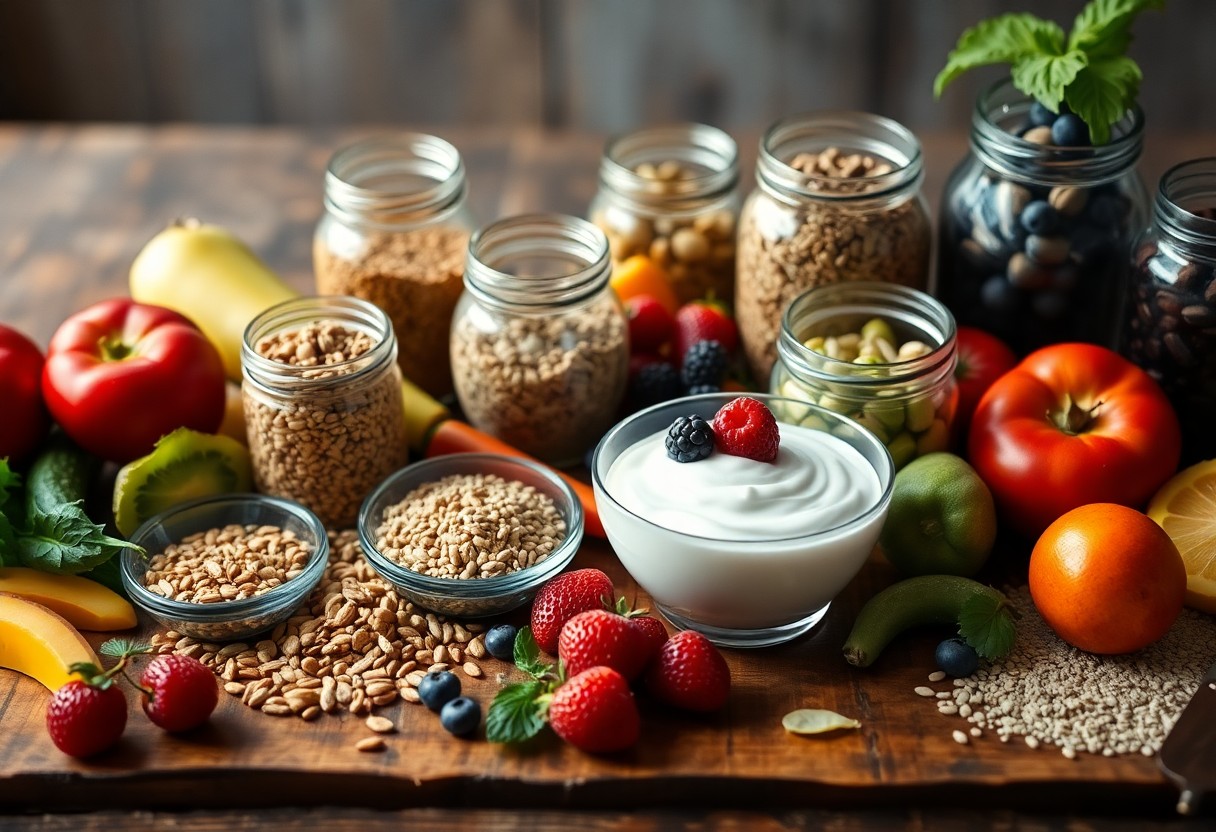
Lifestyle Changes to Enhance Results
Despite your best efforts in dietary adjustments, lifestyle changes can significantly enhance your weight loss while alleviating constipation. Incorporating simple yet effective practices will support your journey towards better health. Explore more about how weight loss can impact your bowel movements by checking out Is your weight-loss plan causing constipation? A few ….
Physical Activity
By increasing your physical activity levels, you can stimulate your digestive system and help move stool through your intestines more efficiently. Aim for at least 30 minutes of moderate exercise most days of the week to experience the benefits for both weight loss and improved gut health.
Stress Management Techniques
With the right stress management techniques, you can improve not only your mental well-being but also your digestive health. Finding activities that resonate with you, such as yoga, meditation, or deep breathing, can lead to increased relaxation and reduced tension.
This positive shift in mindset can create a more favorable environment for digestion, helping to alleviate symptoms of constipation. Incorporating these stress management practices regularly into your routine is a small yet impactful step towards better overall health and weight loss success.
Common Myths and Misconceptions
After exploring dietary solutions for weight loss constipation, it’s vital to address some common myths and misconceptions. Many people believe that certain foods can exacerbate constipation, while others feel that dietary changes won’t have a significant impact on their digestive health. In reality, there are 7 foods that can help you poop and relieve constipation, and being mindful of your dietary choices can lead to positive results.
Myths About Fiber
After understanding the role fiber plays in your diet, you may be surprised to learn that not all fiber is created equal. While many think simply increasing fiber will solve constipation issues, it’s important to focus on both soluble and insoluble fibers, as each serves a different purpose in digestive health.
Myths About Water Intake
Above all the various myths surrounding digestion, the importance of water intake is often misunderstood. Many people believe they can simply increase fiber without adjusting their water consumption, which can lead to further digestive discomfort.
In fact, adequate hydration is vital when increasing your fiber intake, as water helps to soften stool and promote regular bowel movements. Without sufficient water, higher fiber consumption can actually worsen constipation, making it vital to balance your fiber and water intake for optimal digestive health.
To wrap up
Taking this into account, as you explore dietary solutions for weight loss and constipation, it’s vital to focus on a balanced intake of fiber, hydration, and nutrient-rich foods. Incorporating whole grains, fruits, vegetables, and healthy fats can enhance your digestive health while supporting your weight loss journey. Additionally, staying active and monitoring your food intake will help you maintain progress. By making informed dietary choices, you can effectively manage constipation and achieve your weight loss goals.
FAQ: Dietary Solutions for Weight Loss Constipation
Q: How can dietary fiber help with weight loss constipation?
A: Dietary fiber plays a significant role in promoting regular bowel movements and easing constipation. High-fiber foods, such as fruits, vegetables, whole grains, and legumes, not only help to add bulk to the stool but also retain water, making it easier to pass. Including these foods in your diet can aid in weight loss by promoting a feeling of fullness, which may prevent overeating.
Q: What types of foods should I include in my diet to alleviate constipation?
A: To alleviate constipation, consider including a variety of high-fiber foods in your diet. These may include whole grains (such as oatmeal and brown rice), leafy greens (like spinach and kale), fruits (such as apples, pears, and berries), and vegetables (like broccoli and carrots). Additionally, incorporating seeds, nuts, and legumes can also promote healthy digestion and regularity.
Q: Are there any specific dietary changes that can aid weight loss while managing constipation?
A: Yes! When managing constipation while focusing on weight loss, it’s beneficial to increase water intake to help soften stool. Reducing processed foods and added sugars can also help improve digestion. Opt for smaller, more frequent meals that are rich in fiber. Lastly, consider integrating probiotics through fermented foods, such as yogurt, kefir, or sauerkraut, which can enhance gut health.
Q: How does hydration affect constipation and weight loss?
A: Hydration is crucial in managing constipation, as adequate fluid intake helps soften the stool, making it easier to pass. Drinking enough water throughout the day can also support weight loss, as staying hydrated can reduce feelings of hunger and prevent overeating. Aim for at least eight 8-ounce glasses of water daily, adjusting based on your activity level and climate.
Q: Can certain foods worsen constipation when trying to lose weight?
A: Yes, certain foods can exacerbate constipation, especially when trying to lose weight. Foods low in fiber, like white bread, processed snacks, and fast food can contribute to digestive issues. Additionally, excessive intake of dairy products can lead to constipation for some individuals. It’s important to identify which specific foods may affect you and limit their consumption for better digestive health.
Q: Are there any lifestyle changes that can complement dietary solutions for weight loss constipation?
A: Absolutely! In addition to dietary changes, incorporating regular physical activity can significantly improve bowel function and support weight loss efforts. Aim for at least 30 minutes of moderate exercise most days of the week. Additionally, setting a regular eating schedule and listening to your body’s hunger cues can help regulate digestion and prevent constipation.
Q: How important is meal timing in managing weight loss constipation?
A: Meal timing can influence digestion and bowel regularity. Eating at consistent times each day may help train your digestive system and regulate bowel movements. Avoiding large meals late in the evening can also be beneficial, as it allows your body time to digest before bed. Opt for smaller, balanced meals that include fiber and hydration throughout the day for optimal results.
